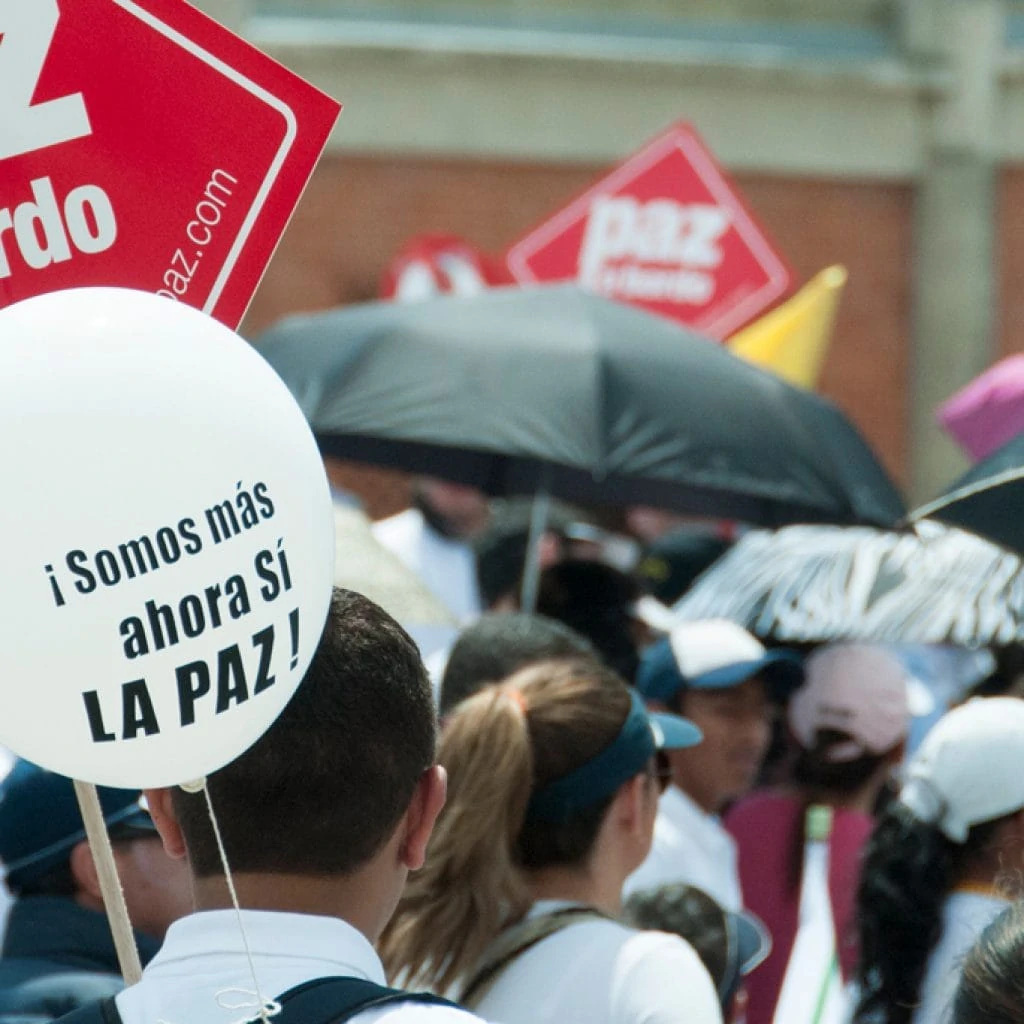Event invitation:
The rejection of the referendum in Colombia has severely shaken legitimate hopes. Although the negotiating parties remain committed to the peace process, the failure of the referendum shows how deep the wounds of war are. How can peace be achieved now after all? The discussion event with Colombian representatives of the peace movement on 1 November in Basel will attempt to find answers to this question.
For more than 50 years the people of Colombia have been suffering from the conflict between the government and various guerrilla groups. Several million people are displaced in their own country. The rejection of the finally negotiated peace treaty shows how fragile the peace process can be until the end. The acceptance of the referendum would only have been an important milestone. After all, social conflicts do not disappear overnight by themselves through a peace treaty. The central question is: How do you create peace in a country where warlike violence has been part of everyday life for generations? This is the question that the event organised by terre des hommes schweiz in Basel on 1 November will be looking into.
Guests from Colombia talk about their practical experiences
In the discussion event, representatives of the peace movement in Colombia will give first-hand accounts of what Colombian organizations are doing to heal the wounds of war.
- Ricardo Esquivia from the organization Sembrandopaz: Sembrandopaz supports four village communities in their peace and reconciliation work. This involves issues such as the return of displaced persons and the reconstruction of their community structures. It provides advice on land rights issues and creates opportunities for dialogue in the communities. This helps to defuse local conflicts.
- Luz Estela Romero from the Colemad organization: Colemad is committed to the rights of women, ethnic minorities and land rights of the population, central issues in the development of sustainable peace. will present concrete examples of their peace work.
- Silke Oldenburg, Lecturer at Ethnological Seminar of the University of BaselShe will bring her experiences from research work in Colombia into the discussion. She has been researching various socio-political issues in Colombia's urban space since 2004. In her new research project, she has been dealing with the challenges of urban changes and the consequences of gentrification in Cartagena de Indias since 2015.
WhenTuesday 1 November 2016, 18:30 to 20 h
WhereCompany Mitte, Gerbergasse 30 Basel (first floor)
The discussion evening is part of a series of events that will begin on 24 October in Zurich and will also take place in Lucerne, Fribourg, Bern and Geneva.
The event is part of the Swiss peacebuilding programme "Semillas des Esperanza". terre des hommes schweiz supports this programme together with nine other Swiss NGOs. It concentrates on supporting grassroots organisations that are carrying out reconciliation work in regions particularly affected by the war.


